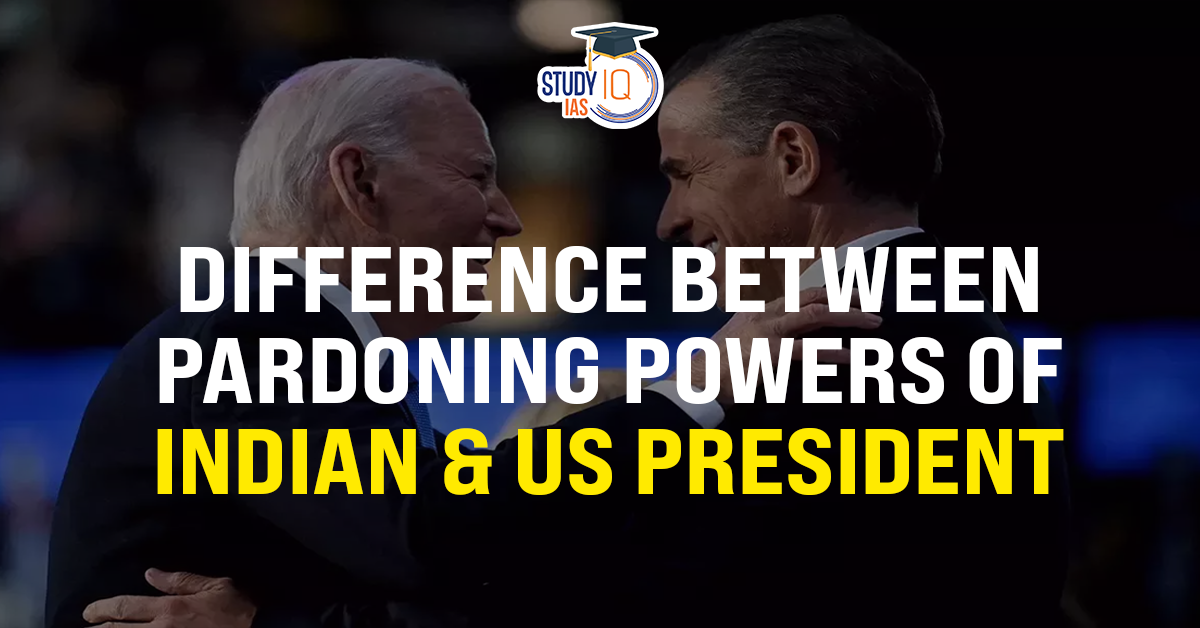Table of Contents
Context: U.S. President Joe Biden has granted an unconditional pardon to his son Hunter Biden who faced sentencing for federal tax and gun convictions.
Difference between Pardoning Powers of Indian and US President
| Feature | President of India | President of USA |
| Constitutional Provision | Article 72 of the Indian Constitution | Article II, Section 2 of the U.S. Constitution. |
| Jurisdiction | Applies to:
● Laws enacted by the Indian Parliament. ● Death sentences under State Laws. ● Punishments by courts-martial (military courts) |
Limited to federal laws; cannot pardon state offenses or intervene in state criminal matters. |
| Binding Advice | Must act on the advice of the Council of Ministers (not discretionary). | Fully discretionary; the President decides unilaterally. |
| Exceptions | None explicitly mentioned; subject to judicial review for arbitrariness (as per Supreme Court rulings). | Cannot pardon in cases of impeachment. |
| Judicial Review | Pardoning power is subject to judicial review for arbitrariness or mala fides.(Epuru Sudhakar case, 2006). | Generally not subject to judicial review; very limited exceptions apply (e.g., if used to obstruct justice). |
| Effect of Pardon | Completely absolves the individual from conviction, punishment, and all disqualifications. | Relieves punishment and associated disqualifications but does not erase the conviction record. |
Types of Pardoning Powers in India
- Pardoning powers of the President are provided under Article 72 & for the governor under Article 161.
- Pardon: When the President grants a pardon, the sentences & punishments given to the offender are nullified.
- Respite: A lesser sentence is granted in place of the original one. E.g. if a convict has a physical disability or if a female offender is pregnant.
- Reprieve: Temporarily suspends the execution of a sentence (particularly the death penalty).
- Remit: It is used to reduce the time period of the sentence, but punishment retains its original character. E.g. A sentence of two years of strict imprisonment may be reduced to one year of strict imprisonment.
- Commute: Original form of punishment is substituted for a lighter form of punishment. E.g. Death penalty being commuted to life imprisonment.


 Right To Information Act, Objective, Fea...
Right To Information Act, Objective, Fea...
 Indian Councils Act 1861, History, Provi...
Indian Councils Act 1861, History, Provi...
 NITI Aayog Report on India’s Hand and ...
NITI Aayog Report on India’s Hand and ...





















